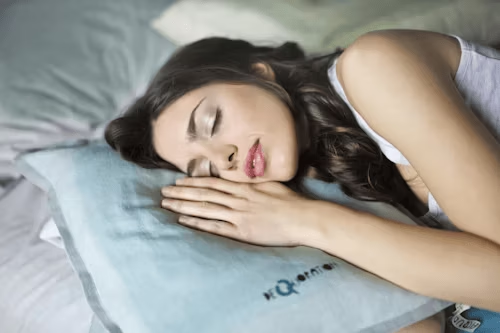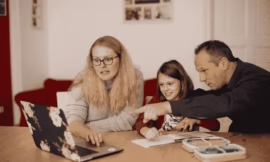In today’s fast-paced world, quality sleep has become a precious commodity. With the rising awareness of its importance for overall health and productivity, the demand for sleep-enhancing solutions has skyrocketed. Enter sleep technology – a rapidly growing industry filled with innovative gadgets and apps designed to improve how we rest. From tracking sleep patterns to optimizing environments, these tools are revolutionizing how we approach sleep.
Why Sleep Technology Matters
According to the Centers for Disease Control and Prevention (CDC), insufficient sleep affects approximately one-third of adults in the United States, leading to issues such as fatigue, decreased productivity, and long-term health risks. Sleep technology aims to address these challenges by:
- Enhancing sleep quality: Helping users achieve deeper, more restorative sleep.
- Identifying sleep disorders: Providing data that can detect potential health issues like sleep apnea.
- Improving lifestyle habits: Encouraging better bedtime routines through reminders and insights.
Top Sleep Gadgets Transforming Rest in 2025
1. Smart Sleep Trackers
Modern sleep trackers have advanced beyond simple wearable devices. Using sensors and artificial intelligence, they provide detailed insights into sleep cycles, heart rate, and even breathing patterns. Popular options include:
- Oura Ring: A discreet ring that monitors sleep quality, readiness, and overall health metrics.
- Withings Sleep Analyzer: A pad placed under your mattress to track sleep and detect signs of sleep apnea.
2. Smart Mattresses and Bedding
Smart mattresses and bedding are designed to adjust to your body’s needs for optimal comfort and temperature regulation. For example:
- Eight Sleep Pod 3: A mattress with built-in temperature control that learns your preferences over time.
- Moona Pillow: A smart pillow that keeps your head cool, promoting uninterrupted sleep.
3. Noise-Canceling and Sound Devices
Sound can significantly impact sleep quality. Innovative devices now help block unwanted noise or provide soothing soundscapes:
- Bose Sleepbuds II: Wireless earbuds that play calming sounds and block external noise.
- Hatch Restore: A multi-functional device offering white noise, guided meditations, and a sunrise alarm.
4. Light Therapy Devices
Light exposure influences our circadian rhythms. Cutting-edge devices now mimic natural sunlight or reduce blue light exposure:
- Casper Glow Light: A bedside lamp designed to promote relaxation with soft, warm lighting.
- Lumie Bodyclock Shine 300: A wake-up light that gradually brightens to simulate a natural sunrise.
5. Wearable Sleep Aids
Wearables are not just for tracking; some actively promote relaxation:
- Muse S: A headband that combines guided meditations with real-time feedback to prepare your mind for sleep.
- Apollo Neuro: A wearable that uses vibrations to calm the nervous system and promote relaxation.
The Role of Sleep Apps in Better Rest
Sleep apps complement physical gadgets by offering tailored guidance and insights. Here are some of the top contenders:
- Calm: A mindfulness app featuring sleep stories, meditations, and soundscapes to help users unwind.
- Sleep Cycle: Tracks your sleep patterns and wakes you up during the lightest phase for a refreshed morning.
- Pzizz: Combines music, voiceovers, and sound effects to lull users into a deep sleep.
Emerging Trends in Sleep Technology
1. AI-Driven Insights
Artificial intelligence is enhancing sleep technology by analyzing large datasets to provide personalized recommendations. These insights can help users identify patterns and make informed decisions about their habits.
2. Non-Invasive Diagnostics
The future of sleep technology includes tools capable of diagnosing sleep disorders without requiring overnight hospital stays. Advances in wearable sensors and at-home testing kits are making this possible.
3. Integration with Smart Homes
Sleep technology is becoming a part of the smart home ecosystem. Devices like smart thermostats, automated blinds, and connected lighting systems can work together to create an optimal sleep environment.
Challenges and Considerations
Despite its potential, sleep technology is not without challenges:
- Over-reliance: Users may become dependent on gadgets rather than addressing underlying lifestyle issues.
- Data privacy: As devices collect sensitive health information, concerns about data security and sharing are growing.
- Cost barriers: High-quality sleep tech can be expensive, limiting accessibility for some individuals.
Conclusion
The future of sleep technology is bright, with innovations promising to transform how we rest and recover. From AI-driven sleep trackers to smart mattresses and calming apps, these tools are making it easier than ever to achieve a good night’s sleep. However, while gadgets and apps can significantly enhance rest, they should be part of a holistic approach that includes healthy sleep hygiene and lifestyle changes.
Investing in sleep technology today could be the key to unlocking better health, productivity, and overall well-being tomorrow. Sweet dreams are now just a gadget away!


